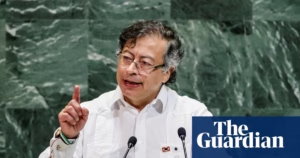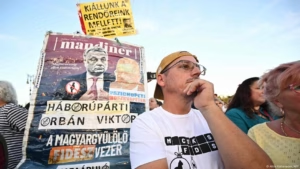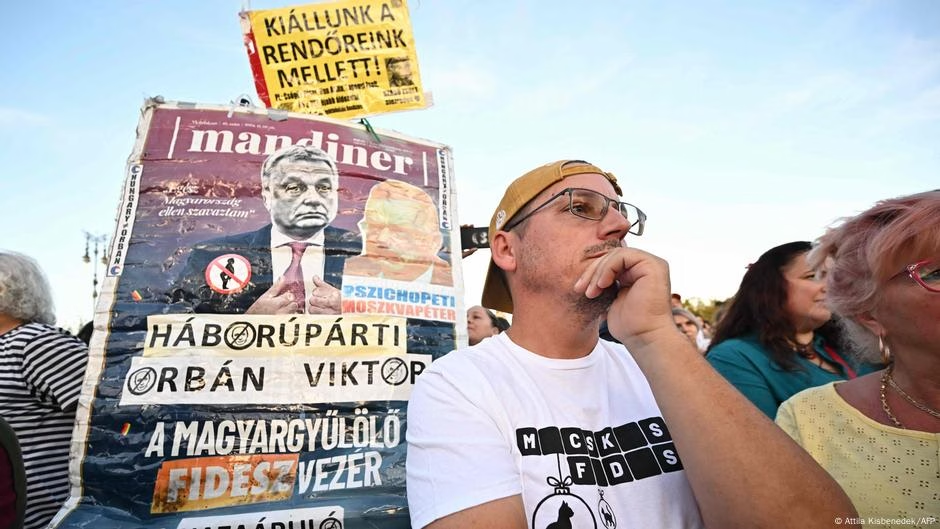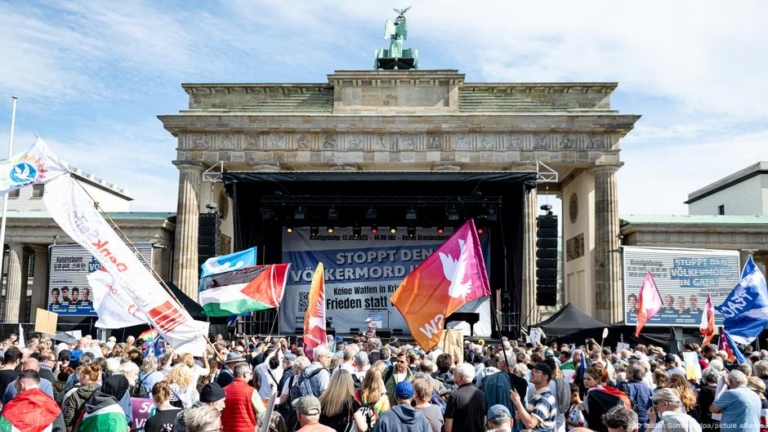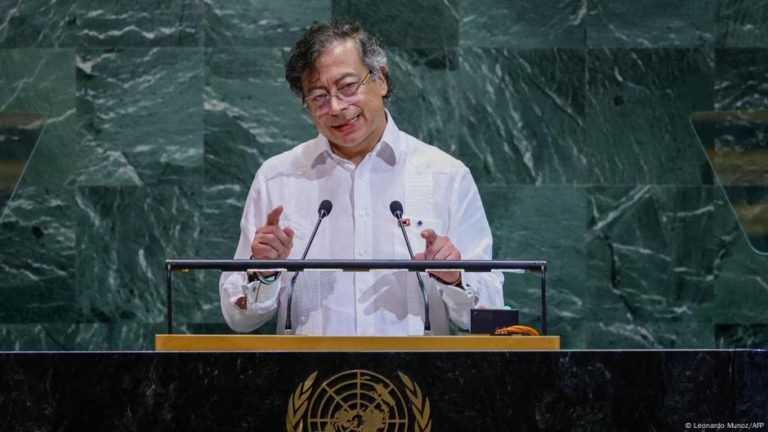Hungary was shaken to its core last week by the news that the chief of police in the southern city of Hodmezövasarhely had taken his own life. In the days leading up to his death, he had been the target of personal attacks in a pro-government local newspaper after permitting a rally critical of the governing Fidesz party.
People were also encouraged to take violent action at the event, although it remains unclear whether his tragic suicide was directly linked to the public aggression. Hungary’s political climate has become increasingly bitter and hostile.
“The neurotoxin of propaganda”
Last weekend, Hungarians protested hate speech and incitement in public discourse, taking to the streets of Budapest. The demonstration was organized by the Loupe Theater Troupe, which estimated that at least 50,000 people responded to its call for a non-partisan demonstration under the slogan “Air! Stand up for free public spaces and clean public discourse.” There were speeches from creative artists, including the comedian Edina Pottyondy, who warned that the Hungarian government was using “the neurotoxin of propaganda” to control public debate.
The actor Tamas Lengyel, one of Loupe’s co-founders, explained that the demonstration was prompted by the government posters plastered all over the country. For more than a decade, these posters have incited hatred against a series of different enemies, from refugees to the Ukrainian President Volodymyr Zelenskyy.
“Billions of taxpayers’ money are being spent on disinformation and propaganda,” Lengyel told DW. “We had the idea of doing something to counter these posters.”
So far, their protest activities have resulted in a petition with more than 200,000 signatures and an initiative promoting a referendum to ban hate speech in the public sphere. Lengyel and his fellow campaigners are waiting for a response from the Hungarian electoral commission.
Cult of personality, on- and off-line
Prime Minister Viktor Orban issued yet another warning about the supposed enemies of Hungary the day before the protest, at an unofficial election campaign event just a few miles away. He spoke of parties, NGOs, and media organizations that were supposedly “just waiting to implement instructions from Brussels.” According to Orban, they were responsible for acts of aggression and smear campaigns against “Christian and nationalist artists, media, and parties.”
At the event, Orban took a selfie with the author of a far-right blog that repeatedly refers to the opposition leader Peter Magyar as a “bug.” Magyar’s Tisza party is currently ahead in the polls, which indicates that it stands a good chance of winning the parliamentary election next April. Consequently, the Fidesz media apparatus has its sights set on it.
Hungary’s ‘Don Veto’
This media apparatus also includes pro-government blogs and influencers. The prime minister has made frequent guest appearances on these outlets in recent months, as on the YouTube channel of the rapper and Orban fan Laszlo Pityinger, who calls himself “Dopeman.” Pityinger has given the right-wing populist Orban the nickname “Don Veto” — an approving allusion to the fictitious mafia boss Don Vito Corleone and Hungary’s tactic of blocking European Union policies.
Fidesz: Dominance of the media
The media landscape in Hungary is dominated by Fidesz. The state media authority MTVA, brought in line by Orban long ago, received public funding of around 80 billion forints — approximately €205 million ($240 million) — in the first six months of this year. Numerous private news portals and regional newspapers are firmly in the hands of companies closely associated with Fidesz.
Last month, protestors demonstrated outside Orban’s country estate after a video emerged of his luxury mansion on a supposed “agricultural complex.”
No improvement in sight
Given the balance of power and hardened positions in Hungary’s media landscape, the tension in public discourse is not expected to ease. Media analyst Gabor Polyak says the governing party bears a particular responsibility, as it has made steadily escalating rhetoric its essential characteristic. “It’s as if we’ve been living in a permanent election campaign for the past 10 years,” he says. “The party can’t function any other way.”
Consequently, Polyak anticipates that the discourse will become even more acrimonious over the coming months in the run-up to the election in the spring of 2026. “It’s going to be a very loud, aggressive, and brutal time,” he predicts.
Source: https://www.dw.com/en/hungary-hate-speech-and-media-pressure-in-election-run-up/a-74128011?maca=en-rss-en-all-1573-rdf
